MercoPress. South Atlantic News Agency
Agriculture
-
Tuesday, May 4th 2021 - 08:00 UTC
Paraguay beef exports on the rise, mainly to Chile
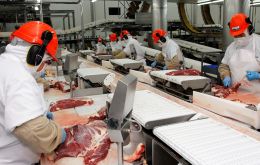
Paraguay's beef exports totalled over 111,000 tons in January, February, March and April of 2021 to set a new record for the sector, the National Service for Animal Quality and Health (Senacsa) announced Monday.
-
Friday, April 30th 2021 - 08:20 UTC
Paraguay finds new markets for meat and plastic products

Paraguay has exported US $ 426,223 worth of meat, plastic and aluminium to new markets in the region and Europe in the first quarter of 2021, it was reported Thursday.
-
Friday, April 23rd 2021 - 08:33 UTC
Bolivia bans beef exports to guarantee domestic supply

The Government of Bolivia Thursday decided to halt all beef exports to prevent international demand from leading to an increase in price domestic consumers could not afford, Minister of Rural Development and Lands, Remmy Gonzales announced. “We have already talked with the sectors and we have already taken the measures to suspend exports while the domestic market is not supplied,” he told the media.
-
Monday, April 19th 2021 - 10:24 UTC
Argentine officials rule out banning beef exports or setting quotas
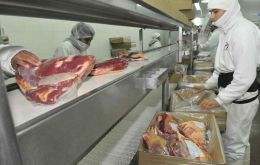
Argentine beef industry sources quoted by local media Sunday announced the administration of President Alberto Fernández was not planning to ban beef exports or set up quotas, after announcing last week a series of measures to detect under-invoicing.
-
Friday, April 16th 2021 - 08:45 UTC
Argentina reinstates beef exports registry
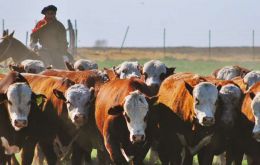
Argentina's government Thursday created a registry of beef exporters among other measures to curb under-invoicing, which authorities fear has been going on for a while now.
-
Saturday, April 10th 2021 - 09:05 UTC
Paraguay grosses US $ 474 million in March for soybean exports

According to a report from Paraguay's National Customs Directorate (DNA) released Friday, exports of soybean and its derivatives bounced back in March up to 1.1 million tons, worth US $ 474.4 million.
-
Saturday, March 27th 2021 - 08:47 UTC
Argentina's exports rise 9.1% year-on-year, but for smaller volumes

Argentina's National Institute for Statistics and Census (INDEC) Friday announced the country's exports increased 9.1% since March 2020, while imports went up 16.4% for the same period of time, for a combined foreign trade worth of US $ 8,488 million, 12.1% above last year's figures.
-
Friday, March 12th 2021 - 13:20 UTC
Brazilian record pork exports in first two months; China the main market
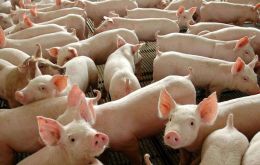
Brazilian pork exports (fresh and processed) recorded a 20.3% increase in February, totaling 81,100 tons compared to 67,400 tons registered in the same period in 2020. Revenues from sales in February totaled US$ 185.7 million, 19.9% higher than the second month of 2020 when sales reached US$ 154.9 million.
-
Friday, March 5th 2021 - 08:25 UTC
Brazilian soy exports in March should reach 15 million tons: 250 ships waiting to load

Brazilian soy shipments this month should reach 15 million tons, which could establish a new record for a month, according to the maritime agency Cargonave, considering the 250 ships in the export line-up, a growth of more than 40% compared to the number seen in the same period last year.
-
Monday, March 1st 2021 - 08:34 UTC
Brazilian ranchers strongly oppose the import of live cattle from neighboring Paraguay
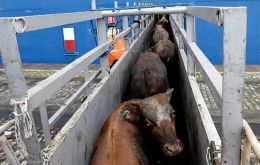
Brazilian meat-packers has asked the agriculture ministry for authorization to import live cattle from Paraguay, bur farmers organizations have strongly criticized the initiative. The request to import live cattle from Paraguay, made by a trade group based in Mato Grosso do Sul, which borders Paraguay, comes as Brazil's cattle availability has fallen in recent months due to strong demand from meat processors.